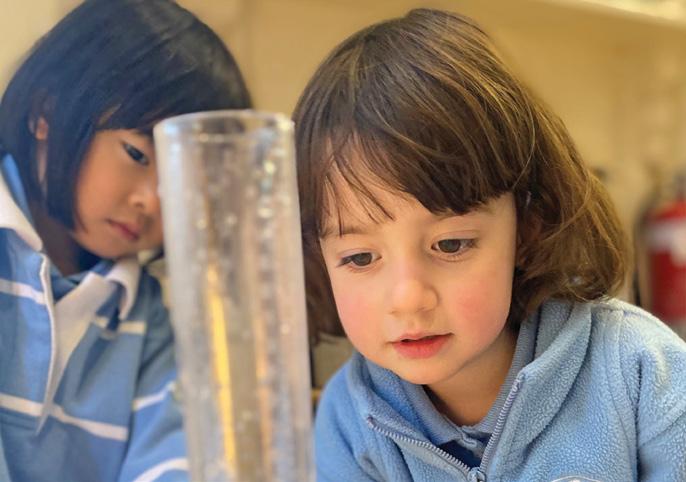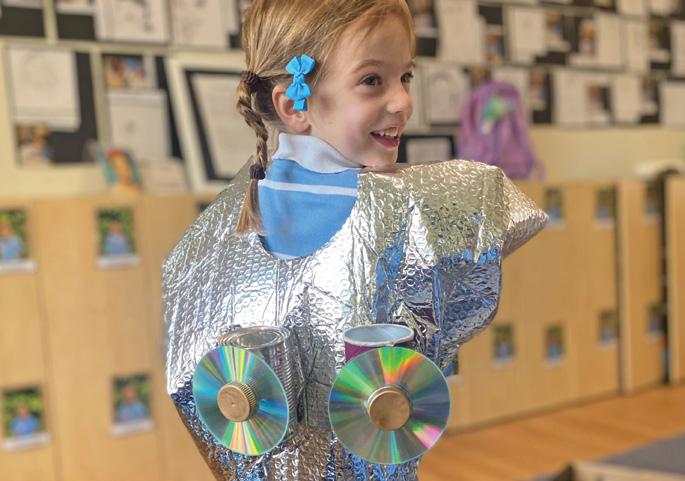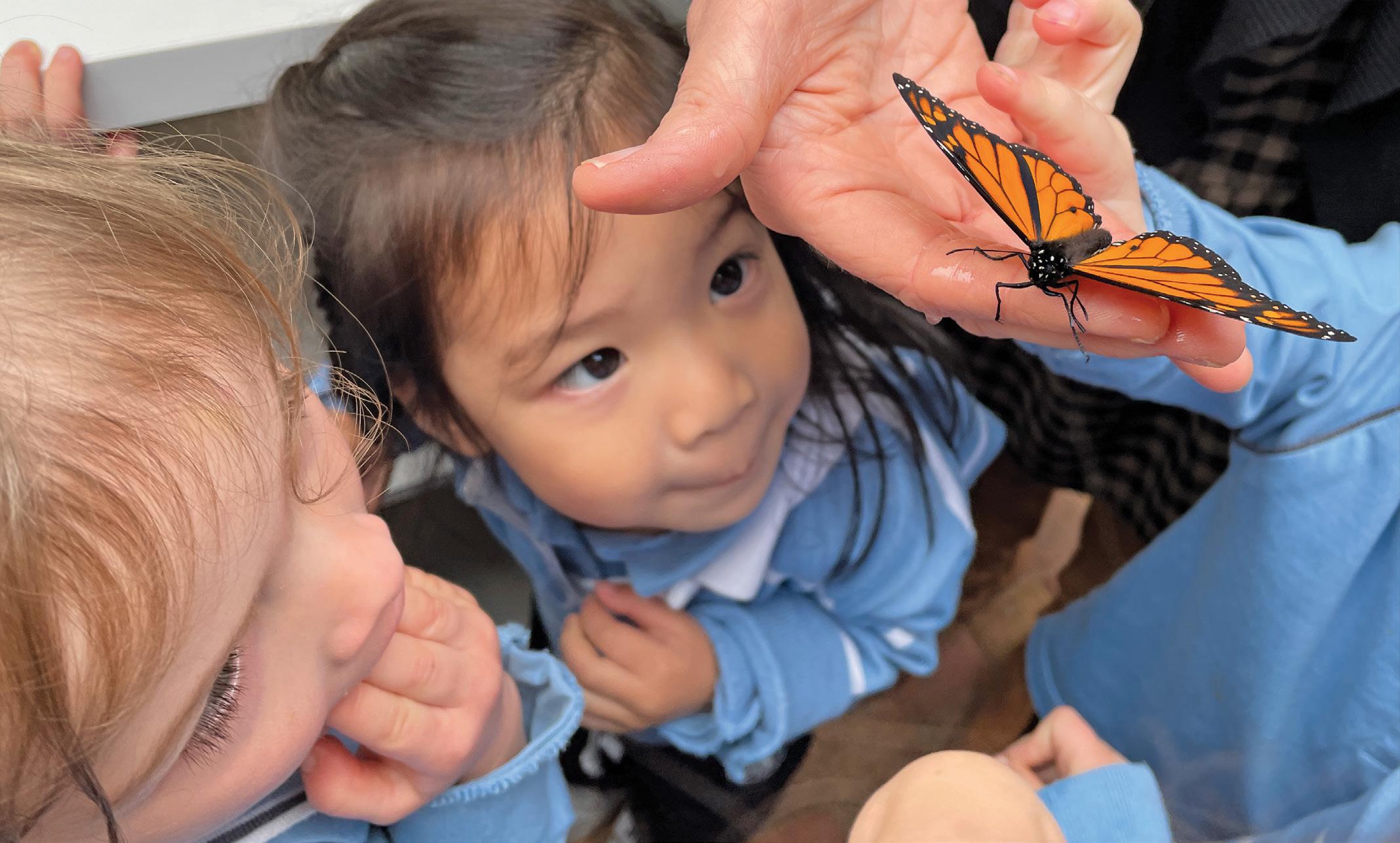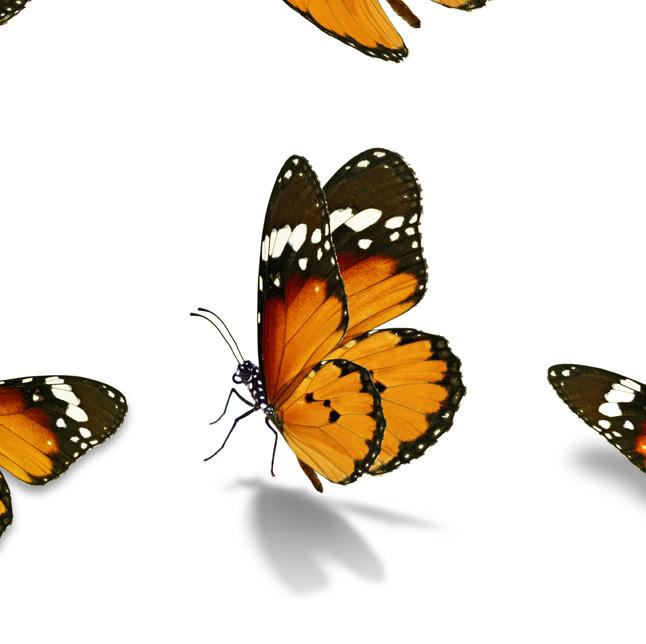
4 minute read
Faculty in Focus - Early Learning
The Importance of Science in the Early Years

Advertisement

We believe that science is an essential subject in early childhood, not only for developing scientific knowledge and inquiry skills but also because it provides a rich context for cultivating other valuable skills.
In our Early Learning Centre (ELC), science is a critical component of our curriculum, and our work has been guided by Belonging, Being and Becoming – The Early Years Learning Framework for Australia and the National Quality Standard.
From the very beginning of their early learning experience, our girls discover how to care for chickens. They observe the hatching of the eggs, chart their growth and development and support the educators to care for them. In providing food scraps for the chickens, the girls also learn about sustainable practices and by collecting the eggs, they develop an appreciation for where our food comes from.
As with all learning in our ELC, it is navigated by the girls’ natural curiosity and in this case, also by our chickens. When Nali (our chicken) sustained a leg injury and visited the vet, the girls took great interest in her care. Consequently, the cubby house transformed into a vet clinic, and all aspects of operating a vet were explored through play, thus providing a rich context for further learning. In this project of scientific inquiry, the girls made important connections and careful observations. They wondered, questioned, researched, developed explanations and worked collaboratively. In Term 2, the girls became engaged in observing and learning about the magical life cycle of a butterfly. This project provided an excellent opportunity for children to become confident and involved learners by reading about butterflies, mathematically sorting pictures to create life cycles and creating wonderful works of art. This learning also took an exciting turn when ‘Sparkles’ refused to fly away, requiring the girls to create a sugar syrup solution and temporary home to help him ‘pump up his wings’ before taking off. Both projects have certainly provided the children with an opportunity to connect with their world, and this has extended into the Annie House. The National Quality Standard, which sets a high benchmark for early childhood education and care, rightly calls upon all early childhood centres to care for the environment and support children to become environmentally responsible.


To do this, our ELC girls connected with our Year 4 students, who are equally passionate about caring for our environment, to learn how to correctly sort our already minimal rubbish to reduce landfill. Instilling a sense of social and environmental responsibility at this early age is undoubtedly the right place to start for real change to occur in our world.
Also linked to this learning is the exploration our Annie House girls have undertaken to determine where and why water is used. This provided a provocation for the girls to consider the properties of water through play and the lens of a microscope provided by the Science Department. A rain gauge was installed and monitored daily by the class, supporting the girls to learn about where water comes from, the amount of rain falling, and how to read a scale. The girls also carefully monitored and recorded their observations of the weather in their class journal each day, which will contribute towards developing an understanding of seasonal weather patterns in the long term. Developing scientific knowledge was also presented through literacy. Our participation in the 2021 National Simultaneous Storytime saw us read the book, Give me some Space! by Philip Bunting, which was read from the International Space Station. Learning about astronauts was enhanced when astrophysicist, Dr Eriita Jones, inspired the girls by sharing her incredible knowledge of space during her visit. The children have continued with this learning, reading, designing and creating space suits, which were of course, made from our ‘rubbish’. Science sits at the heart of the curriculum in our ELC. It naturally emerges from the girls’ curiosity about the world around them, and it requires the expert guidance of our educators to transform this curiosity into rich, valuable learning experiences. Centered on the belief that our girls are already capable of making a positive difference to the world, it deeply focuses on ensuring they develop an intrinsic love of science and, indeed, a lifelong love of learning, enabling each girl to be the best she can be throughout her life.
Rebecca Williamson Assistant Head of the Junior School – Early Years









